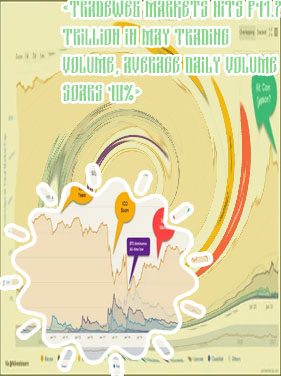Bitcoin secures trillion market cap first
Bitcoin recently reached a significant milestone by securing a trillion-dollar market cap for the first time ever. This achievement has sparked a lot of interest and discussion within the cryptocurrency community. To delve deeper into the implications and significance of this event, here are two articles that provide valuable insights and analysis:
Breaking Down Bitcoin's Trillion Dollar Market Cap: What It Means for Investors

Bitcoin, the most popular and valuable cryptocurrency in the world, recently reached a significant milestone - a trillion-dollar market cap. This achievement reflects not only the growing acceptance and adoption of Bitcoin but also its potential as a store of value and investment asset.
For investors, this milestone is a clear signal that Bitcoin is here to stay and has the potential to become a mainstream asset class. The trillion-dollar market cap signifies the growing interest from institutional investors, who are increasingly recognizing Bitcoin as a hedge against inflation and a diversification tool for their portfolios. Additionally, the growing market cap indicates the increasing trust and confidence in Bitcoin as a legitimate and valuable asset.
Investors who are looking to diversify their portfolios and hedge against traditional market risks should pay attention to Bitcoin's trillion-dollar market cap. By incorporating Bitcoin into their investment strategy, investors can potentially benefit from its growth potential and the diversification it offers.
In conclusion, Bitcoin's trillion-dollar market cap is a significant milestone that highlights the growing importance of cryptocurrencies in the financial world. Investors who are looking to stay ahead of the curve and diversify their portfolios should take note of this milestone and consider incorporating Bitcoin into their investment strategy.
The Evolution of Bitcoin: From Obscurity to Trillion Dollar Market Cap
Bitcoin, the most popular cryptocurrency, has come a long way since its inception in 2009. Initially created as a decentralized digital currency, Bitcoin has evolved into a trillion-dollar market cap phenomenon, revolutionizing the way we perceive and use money.
One of the key factors behind Bitcoin's evolution is its decentralized nature, allowing users to make transactions without the need for intermediaries such as banks or financial institutions. This peer-to-peer system ensures transparency, security, and anonymity, making it an attractive option for many investors and users alike.
Moreover, Bitcoin's limited supply of 21 million coins has led to its store of value status, akin to digital gold. This scarcity has driven up the demand for Bitcoin, resulting in its exponential growth in value over the years. As a result, many investors have reaped significant profits by investing in Bitcoin early on and holding onto their coins as the market cap surged.
One practical use case of Bitcoin is in cross-border remittances. With traditional money transfer services charging high fees and taking several days to transfer funds, Bitcoin offers a faster and cheaper alternative. By using Bitcoin, individuals can send money anywhere in the world within minutes, at a fraction of the cost compared to traditional methods.













